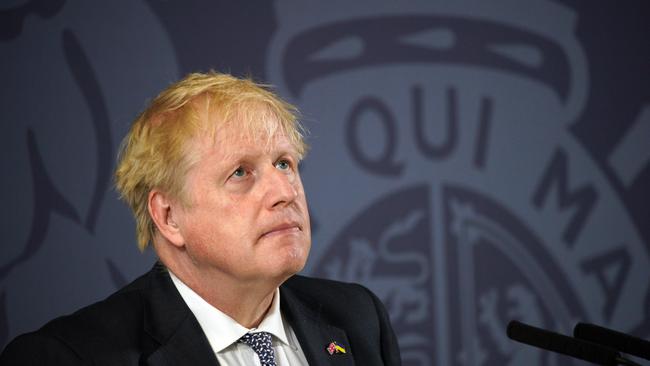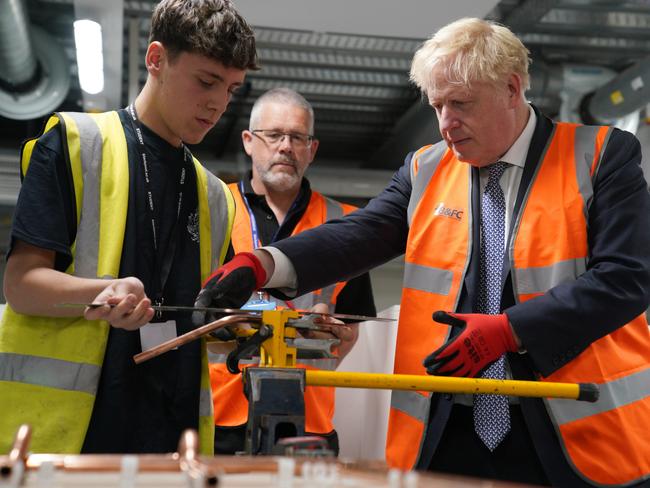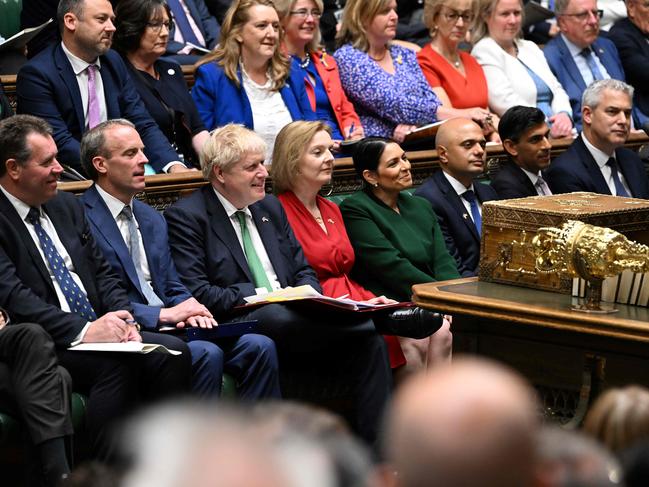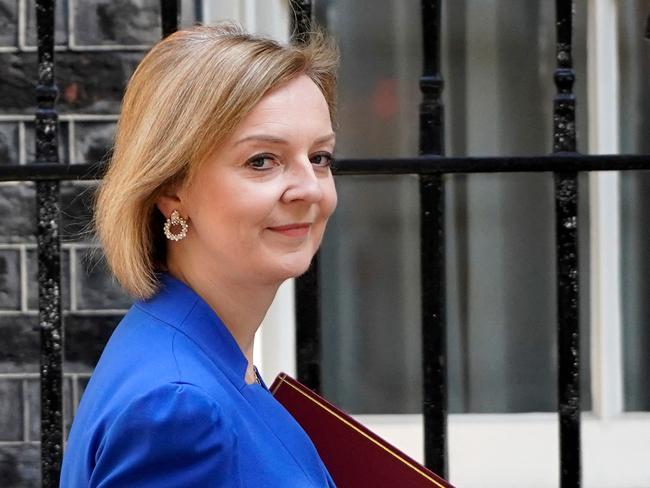UK prime minister Boris Johnson is running out of time to turn things around
The UK prime minister’s authority will be hard to regain since 41 per cent of Tory MPs voted against him.

Boris Johnson needs to be bold: business-as-usual will not save his premiership. But never has it been more difficult for him to get anything significant done. He has squandered the goodwill and authority that came with his 80-seat majority and is out of easy options. He faces a struggle to deliver any kind of change.
He is, now, a prisoner of his party. Another confidence ballot, whether in the autumn or a year from now, appears a near certainty. The rebels need only 32 more votes to oust him and so Mr Johnson has to tread carefully: for him, it is imperative he does not give his critics the critical mass they need.
The embarrassing truth is that No. 10 has been going all-out to placate backbenchers for some time. Remember how planning, the government’s most significant pro-growth reform, was dropped after the Chesham and Amersham by-election defeat. But things are now more perilous than ever: it will take the opposition of only a small number of MPs for policies to be abandoned. Any issue that even a handful of Johnson-supporting MPs dislike is a no-go. This acts as a check on radicalism. Looking ahead to the votes in Wakefield, and Tiverton and Honiton on June 23, one government source wonders: “What will we abandon after we lose the two by-elections?”
Even then, policies face more hurdles than before. One of those in the engine room of government laments: “When it starts to rain, the snails and the slugs come out. When there’s talk of defenestration, the system becomes gummed up.” This is Mr Johnson’s problem in a nutshell: if officials think he may not be around in a year, they’ll be tempted to slow down ideas they don’t much care for in the hope they will be forgotten with a new leader in No. 10. I hear of one department where the review of arm’s-length bodies ordered by Jacob Rees-Mogg, the minister for government efficiency, found 19 quangos. But the advice from officials came back to the minister that none could be shut or merged.

Under pressure, Downing Street is having to rush out policies that ideally require more time in the oven to avoid the risk of being spat out. Take the housing announcements Mr Johnson made yesterday (Thursday). The verdict of one Tory Whitehall veteran is that they are “in the right direction, but not fully thought through”.
There are ideas in there worthy of consideration. For example, if you can use housing benefit to pay a landlord’s mortgage, why not your own? The review of mortgage finance is also sensible: the post-crash rules may well be too strict. The right-to-buy for housing association tenants could have benefits too. But it is telling that the policy is unfunded. This is always the sign of something being announced prematurely. No. 10 is adamant that the money for it will come out of existing government budgets. But whose? Michael Gove’s? In which case, where will the cuts to his levelling-up and housing budget fall?
The right-to-buy for housing association tenants will also require a negotiation with the landlords. This is why it hasn’t happened yet despite the Tories having been promising this since 2015. Kate Henderson, chairwoman of the National Housing Federation, may be more inclined to dialogue than her predecessor, David Orr, but don’t expect an agreement soon. Johnson allies say we “should not underestimate” the leverage the government has, given that it regulates housing associations and helps provide capital for new projects. But it will be tempting for housing associations to play for time and hope it may be all change at No. 10 in the next year.

Those who think building more houses is the obvious solution to the housing crisis have little to cheer in the new announcements. There are sensible measures about allowing disused agricultural buildings to be turned into homes in national parks and areas of outstanding natural beauty; also some plans to make it easier for small developments of six houses. But something far more radical than this is needed if home ownership among the under-40s is to be increased. Until the planning system is reformed, all other measures to deal with housing will be mere pain relief.
The go-slow is made worse because the government is pumping out ideas in scattergun fashion. One minister at the sharp end complains that what is coming out of the centre “is not cohesive or coherent”. They say their small department simply doesn’t have the bandwidth to process it all and that the emphasis on eye-catching initiatives makes “it feel like the last days of Theresa May”.
When the prime minister tries to rally government departments, they tend to respond by going through the motions but little more, convinced that No. 10 has a short attention span. One long-serving Whitehall hand observes that the “view from several cabinet ministers is that the PM moves on to the next thing quite quickly, so don’t give him too much”. Downing Street needs to concentrate on fewer things for longer.

There are also tensions about the fact that Downing Street is not always speaking with one voice. The new tendency for meetings with very tight castlists means that information isn’t flowing round the building and so departments are not quite sure what No. 10 really wants.
Such confusion explains the difficulty Liz Truss has had with the Northern Ireland protocol, seeming to be out of sync with the prime minister. One admirer of hers in government complains that, at times, Downing Street wants her to go full bore, only for the prime minister to pull back.
It is not just domestically that Mr Johnson’s loss of authority is causing him problems. The chances of the European Union granting concessions on the protocol have dropped to close to zero. In Brussels, they increasingly see him as a lame duck. They might be wrong, but the view is that if changes to the protocol are to be offered, it makes more sense to offer them to Mr Johnson’s successor to try to improve relations, rather than to him.
Mr Johnson has made a career out of surviving political and personal scrapes that would have finished off other politicians. But he is running out of time to turn things around. The danger is that after 41 per cent of his MPs voted against him, Mr Johnson will find his writ doesn’t run in Whitehall like it once did. Authority, once lost, is hard to regain.
The Times



To join the conversation, please log in. Don't have an account? Register
Join the conversation, you are commenting as Logout